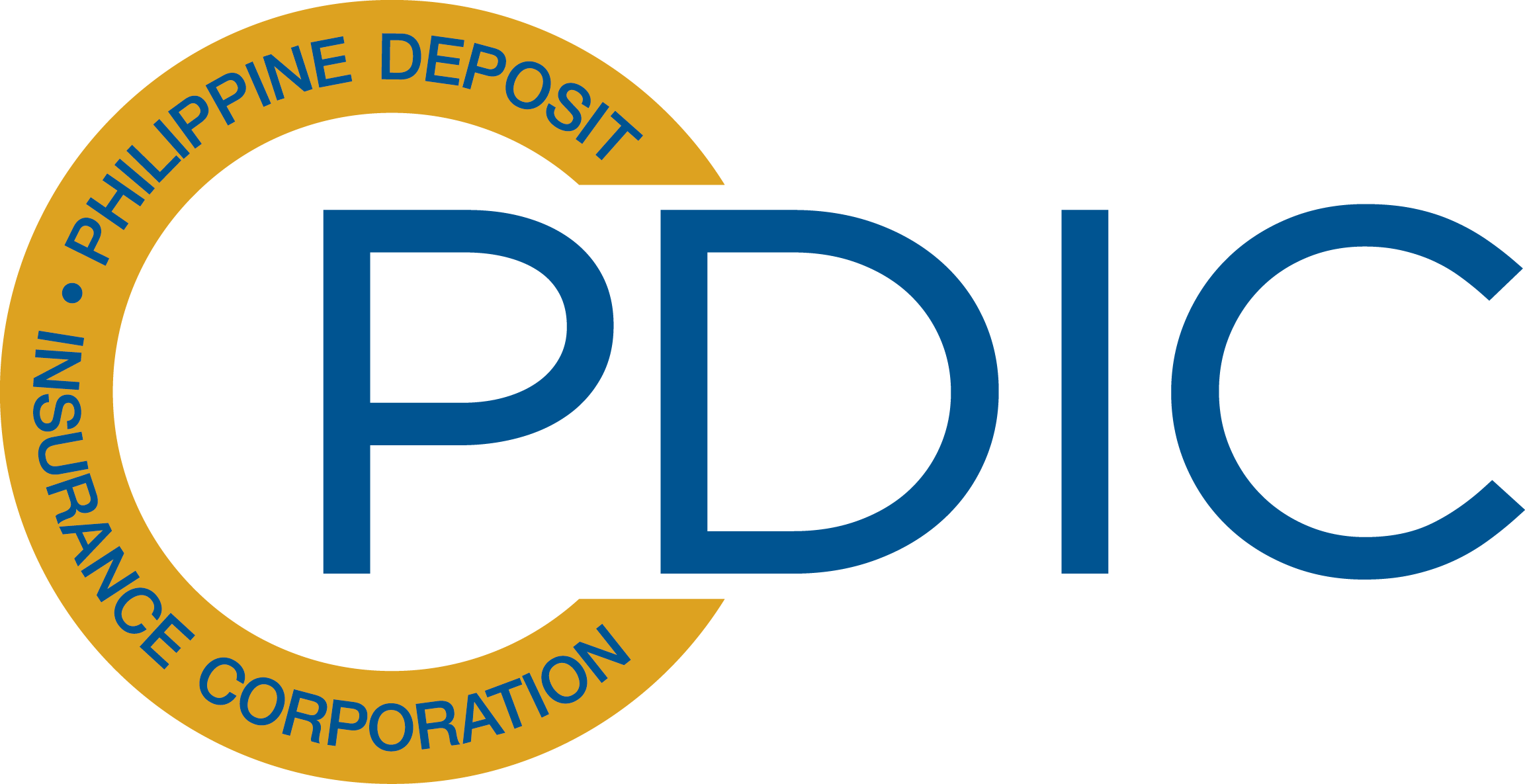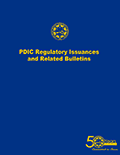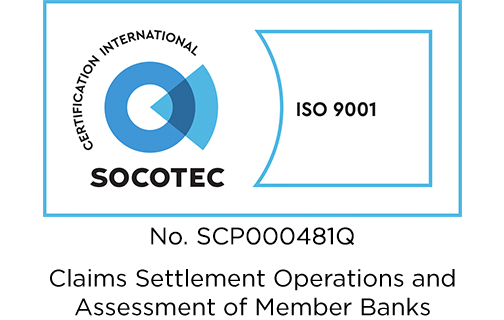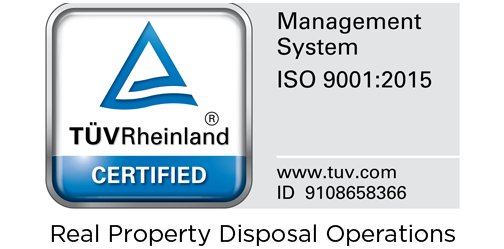Pursuant to its authority under Sections 3 (b) and 9 (Tenth) of the PDIC Charter (Republic Act No. 3591, as amended), the Board of Directors of the Philippine Deposit Insurance Corporation issued Board Resolution No. 2017-03-057 dated April 3, 2017, approving the issuance of these Revised Rules and Regulations on Regular Assessment of Banks implementing Section 7 of the PDIC Charter.
Section 1. Statement of Policy
PDIC is tasked to promote and safeguard the interests of the depositing public by way of providing insurance coverage on all insured bank deposits and in helping maintain a sound and stable banking system.
To enable PDIC to provide deposit insurance coverage and perform its mandates, all banks1 shall pay assessment to PDIC in accordance with Section 7 of the PDIC Charter and these Revised Rules and Regulations on Regular Assessment of Banks ("Regulatory Issuance").
Section 2. Coverage
This Regulatory Issuance shall govern payment of regular assessment to PDIC by banks incorporated under Philippine laws, including branches and agencies in the Philippines of foreign banks.
Section 3. Assessment Base
The assessment base shall be the total deposit2 liability of a bank without any deduction for indebtedness of depositors, and shall include the following items:
Peso and foreign currency deposits maintained in banks, as follows:
Demand, "NOW", Savings, Time, Non-Negotiable Certificates of Time Deposits (CTDs), Negotiable CTDs and Special Savings Accounts, including the Accrued Interest Payable on these accounts; and
1 Section 5 (d), PDIC Charter
2 Section 5 (g), PDIC Charter
Accounts other than those mentioned above which fall under the definition of deposit in the PDIC Charter.
Deposits in overseas branch/es of a bank incorporated under Philippine laws which were duly approved by the PDIC Board of Directors for insurance coverage.
As used in this Regulatory Issuance, new bank refers to a newly established bank or bank resulting from consolidation, with Certificate of Authority to Operate issued by the Bangko Sentral ng Pilipinas (BSP). The assessment base shall be computed as follows:
For existing banks, the semi-annual assessment due on -
July 31 shall be the average amount of the total assessment items of a bank, as defined in Part A of this Section, as of the close of business on the two quarterly assessment base days, which are the preceding March 31 and June 30; January 31 shall be the average amount of the total assessment items of a bank, as defined in Part A of this Section, as of the close of business on the two quarterly assessment base days, which are the preceding September 30 and December 31.
For new banks, the semi-annual assessment base shall be the total assessment items of the bank as of the close of business either on the preceding June 30 or December 31, whichever is applicable. The semi-annual assessment base shall include liabilities for deposits of another bank or banks, which the new bank assumed, if any. When any of the base days falls on a non-business day or legal holiday, either national or local, the preceding business day shall be used as assessment base day.
Section 4. Regular Assessment Rate
-
Subject to periodic review, the regular assessment rate shall be one-fifth (1/5) of one per centum (1%) per annum of the total deposit liability of a bank, which shall be payable semi-annually as specified in Section 6 hereof.
Accordingly, semi-annual assessment to be paid shall be equal to one-half (1/2) of the one-fifth (1/5) of one per centum per annum or the factor of 0.001 multiplied by the semi-annual assessment base as determined in Section 3 (C) hereof. In no case, however, shall the assessment to be paid be less than Five Thousand Pesos (P5,000.00).
-
Conversion Rates for Foreign Currency Deposits
The amount of deposits maintained in foreign currencies shall be converted to Philippine pesos as follows:
United States (US) dollar denominated deposits based on Philippine Dealing System (PDS) closing rates as of assessment base day/s; and Foreign currency deposits in a denomination other than the US dollar shall first be converted to its equivalent amount in US dollar using the New York US dollar/third currency closing rates as of assessment base day/s, before converting the US dollar equivalent to pesos using PDS closing rates as of assessment base day/s.
Provided, that in the event the prescribed conversion rate for foreign exchange transactions is amended through regulation by the BSP, the basis for converting foreign currency denominated deposits into pesos, as of assessment base days, shall be aligned with the conversion rates prescribed by the BSP.
Section 5. Filing of Certified Statements
Existing banks must file with PDIC the Regular Certified Statement (RCS)3 on or before January 31 and July 31 of each year, consistent with Section 3 (C) of this Regulatory Issuance.
New banks must file with PDIC their First Certified Statement (FCS)4 on or before January 31 or July 31 of the following semi-annual period after the start of its operations as indicated in the corresponding Circular Letter issued by the BSP, whether or not the new bank was able to successfully solicit deposits before the FCS due date.
When any of said days is a non-business day or legal holiday, either national or local, the certified statements shall be filed on the preceding business day.
The FCS/RCS shall show the deposit liabilities of a bank as of the close of business on assessment base day/s, the computation of the semi-annual assessment base, and the amount of the semi-annual assessment due to PDIC. It shall be:
verified and signed under oath by the Bank President or any officer duly designated by the bank's Board to sign financial reports; and accompanied by required supporting schedules.5
All banks must use the Certified Statement Forms available at the PDIC website (www.pdic.gov.ph)
The FCS/RCS shall be accomplished and submitted as follows:
soft copy, by electronic mail, using the excel template prescribed by PDIC to: insd@pdic.gov.ph; and two (2) duly signed and notarized printed copies, either by personal delivery or through mail, which shall be submitted to:
The Department Manager
Insurance Department
Philippine Deposit Insurance Corporation
8F SSS Building, 6782 Ayala Avenue cor. V.A. Rufino St.
Makati City 1226
Section 6. Payment of Regular Assessment
The regular assessment shall be paid simultaneous with the filing of the FCS/RCS on January 31 or July 31 in accordance with Section 5 of this Regulatory Issuance. All payments shall be made through the Real Time Gross Settlement (RTGS) facility. Banks which have no RTGS facility may pay via Land Bank of the Philippines Online Collection facility.
New banks shall pay their first semi-annual assessment on the assessment due date (January 31 or July 31) immediately following the semester after the start of its operations consistent with paragraph 2 of Section 5 hereof.
Section 7. Default in Payment of Regular and Deficiency Assessment and its Consequences
Default
The bank shall be considered in default in case of non-payment or failure to pay in full the semi-annual assessment on or before January 31 or July 31, whichever is applicable. Consequences of Default
-
Prohibition from Paying Dividends or Distributing Capital Assets
A bank is prohibited from doing the following acts for as long as it remains in default:
pay any dividend on its capital stock or interest on its capital notes or debentures (if such interest is required to be paid only out of net profits); or, distribute any of its capital assets.
Liability for Interest and Penalty Charges
-
Non-Payment of Regular Assessment
Any assessment that remains unpaid after the assessment due date, without need of any demand, shall be imposed an interest computed at the legal rate for loans as prescribed by law or appropriate authority reckoned from the date the assessment became due and payable, until full payment of the said assessment.
If such assessment remains unpaid after thirty (30) days from the assessment due date, a penalty charge shall be additionally imposed on the unpaid assessment equivalent to twice the amount of interest payable reckoned from the date the assessment became due and payable as provided in the PDIC Charter.6
-
Deficiency in the Payment of Regular Assessment
For purposes of this Section, there is a deficiency assessment when the assessment paid by the bank is less than the assessment computed and determined by PDIC upon assessment audit.
A bank that fails to pay a deficiency assessment within fifteen (15) days from receipt of demand from PDIC shall be imposed an interest computed at the legal rate for loans as prescribed by law or appropriate authority reckoned from the date the deficiency became due and payable, until full payment of the said deficiency.
If such deficiency remains unpaid after thirty (30) days from receipt of demand from PDIC, a penalty charge shall be additionally imposed on the unpaid deficiency equivalent to twice the amount of interest payable reckoned from the date the deficiency became due and payable as provided in the PDIC Charter, until full payment thereof.
-
Administrative Fine7
The defaulting bank or any of its directors, officers or agents responsible for the non-payment of the assessment or deficiency may be imposed administrative fines in amounts as may be deemed appropriate, but in no case to exceed three times the amount of damages or costs caused by the transaction for each day that the bank is in default.
-
Criminal Liability8
Default in the payment of assessment or deficiency and the violation of Item B.1 of this Section is tantamount to willful failure or refusal to comply with,
6 Section 26 (e), PDIC Charter
7 Section 26 (g), PDIC Charter
8 Section 26 (f), PDIC Charter
or violation of the PDIC Charter for which any director, officer, employee or agent of a bank may be held liable and be imposed a penalty of imprisonment of not less than six (6) years but not more than twelve (12) years or a fine of not less than Fifty Thousand Pesos (P50,000.00) but not more than Ten Million Pesos (P10,000,000.00), or both, at the discretion of the court.
The above sanctions may be pursued and/or imposed simultaneously.
-
Remedy Available to PDIC to Collect the Assessment
PDIC may, at its discretion, institute a case for collection against a bank that fails or refuses to pay any assessment due, including interest and penalties thereon, after thirty (30) days from receipt of demand from PDIC.
This remedy is available whether or not the bank shall have filed a certified statement or a suit shall have been brought by PDIC to compel the bank to file any of the certified statements. Provided, however, that the collection case is filed within five (5) years after the right accrued.
In cases where the insured bank has made or filed a false or fraudulent certified statement with the intent to evade, in whole or in part, the payment of assessment, the five (5) year prescriptive period for filing of a collection case shall commence from date of discovery by PDIC that the certified statement is false or fraudulent.
Section 8. Failure to File Certified Statements or Filing of False or Fraudulent Statements
The following acts shall subject the directors, officers, employees or agents of the bank to the sanctions and penalties under Section 26(f) and (g) of the PDIC Charter:
failure to file any Certified Statement including the required supporting schedules; willful making of false statement or entry in a certified statement; or filing with the PDIC of a false or fraudulent FCS/RCS with intent to evade, in whole or in part, the payment of assessment.
In addition, a bank that fails to file an FCS/RCS may be compelled by PDIC to file such statement by mandatory injunction or other appropriate remedy in a suit brought for the purpose, and/or be imposed an administrative fine.
The above remedies and sanctions are without prejudice to other actions that PDIC may take under other applicable laws.
Section 9. Onsite Assessment Audit
PDIC may conduct an onsite assessment audit on banks to ascertain:
Overall compliance with PDIC Charter provisions on assessment and its implementing rules and regulations; and, Correctness and validity of assessment items declared in the FCS/RCS and assessment paid to PDIC.
Onsite assessment audit shall be conducted not more than once every semester. It may be conducted in conjunction with a regular examination, special examination, or insurance risk evaluation under Section 6, paragraph 2 of the PDIC Charter.
The assessment audit shall cover verification of information in the FCS/RCS filed vis-a-vis the bank's schedules/records such as General Ledgers, Daily Trial Balances and other schedules.
Section 10. Rules on Contested Assessment
-
Contested Assessment
In case of dispute between a bank and PDIC over the amount of assessment, the bank may request for exemption from the prohibitions enumerated in Section 7 (B.1) of this Regulatory Issuance and post a security in accordance with Item B of this Section which security shall remain in force until the final determination of the issue by a court of competent jurisdiction.
If the security is found by PDIC to be sufficient and acceptable, it shall issue a written notice allowing such bank to undertake the actions cited in items (a) and (b) of Section 7 (B.1) hereof. The permission to undertake said actions may be revoked by PDIC if the bank violates the terms of the security or is in default in the payment of other assessments.
-
Security Deposit for Contested Assessment
The security deposit may be in cash, securities issued by the Republic of the Philippines, or any other security acceptable to PDIC, in an amount equivalent to the contested assessment which shall be placed in an escrow account in favor of PDIC.
The escrow account shall be opened and maintained with the head office of any of the designated depository banks of PDIC. For this purpose, an escrow agreement shall be executed by and among the bank, PDIC, and the designated depository bank of PDIC as escrow agent.
The escrow agent shall furnish PDIC with the semi-annual reports on the balances of the escrow account. Should the bank receive an updated assessment of account from PDIC such that the amount is found to be less than the new assessment, the bank must correspondingly increase the escrow deposit to cover the deficiency within thirty (30) days from receipt of notice from PDIC. The amount of escrow deposit, net of all fees, charges and taxes should always be sufficient to cover PDIC's computation of assessment plus interest charges equivalent to the legal rate for loans as prescribed by law or appropriate authority.
The escrow deposit/s, including interest earnings accruing thereon, shall be ceded to the party in whose favor the dispute is finally resolved.
Section 11. Overpayment of Assessment
-
Claim for Overpayment
A bank may file with PDIC a request to credit any amount paid in excess of the assessment due against its succeeding assessment.
PDIC shall verify the claim and approve the same, if found correct. PDIC shall deny the claim if it finds the same incorrect and shall notify the bank accordingly.
If the amount claimed by the bank is different from the amount of overpayment verified by PDIC, the amount as verified by PDIC shall prevail and shall accordingly be credited to the requesting bank's succeeding assessment.
In case the overpayment is discovered by PDIC, it shall notify the bank accordingly.
-
Prescription of Claim for Overpayment
No action or proceeding shall be brought for the recovery of any amount paid to PDIC in excess of the amount due to it, unless such action or proceeding shall have been brought within five (5) years from date of payment of regular assessment in accordance with Section 6 hereof.
Section 12. Repealing Clause
PDIC Regulatory Issuance 2010-01 on the Revised Rules and Regulations on Assessment of Member Banks is hereby repealed.
Section 13. Effectivity
This Regulatory Issuance shall take effect fifteen (15) days after publication in a newspaper of general circulation.
Publication: Manila Bulletin, May 12,
2017
Date of Effectivity: May 27,
2017
|
 PDIC is a government instrumentality created in 1963
PDIC is a government instrumentality created in 1963

.png?Friday; April 26, 2024)


.jpeg)
.png)



